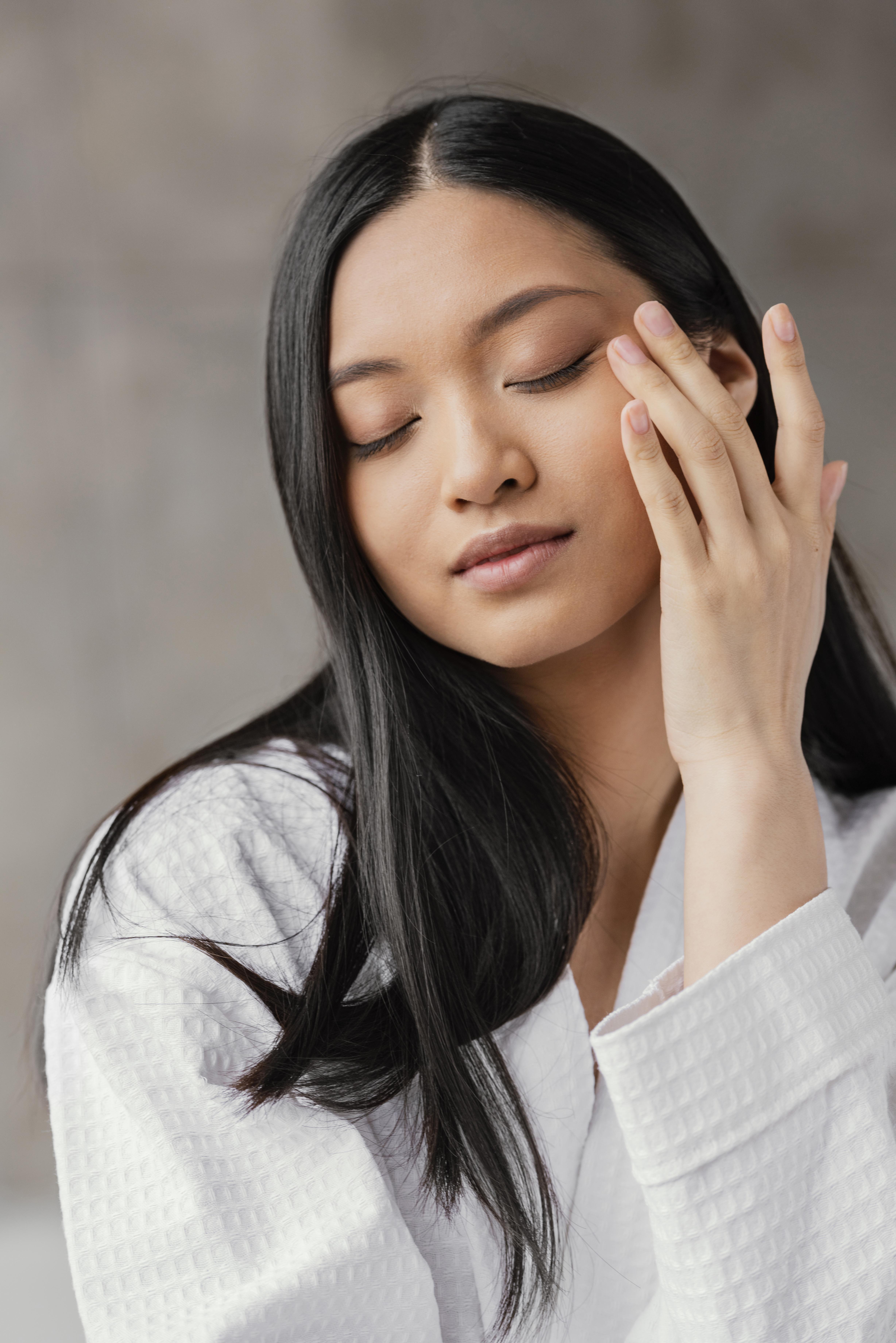If you like a simple, effective, and low-maintenance routine, the Japanese skincare routine approach is a better option. But if you love coddling your skin with several steps and layers of products, then the Korean skincare routine is ideal for you. In the end, both routines prioritize skin health, so the best option relies on your skin type, lifestyle, and preference.
What Ingredients Should I Look for in Japanese and Korean Skincare Routine?

When it comes to skincare, Japanese and Korean skincare have perfected the art of using effective and natural ingredients that nourish, guard, and rejuvenate the skin. Hydration, brightening, or anti-aging is what you might be looking for, and discovering the power ingredients behind these skincare routines can help you make wise choices for your skin. So, let's begin with the best ingredients to look for in Japanese and Korean skincare!

Japanese Skincare Ingredients: Tradition Meets Simplicity
Japanese skincare is minimalist, gentle beauty in the tradition of things. Hydration, protection, and strengthening the skin barrier are the emphasis.
1. Rice Extract – Renowned for its brightening and hydrating properties, rice extract is a staple of Japanese skincare. It enhances smoother skin texture, fades dark spots, and provides the skin with a radiant glow.
2. Green Tea (Matcha) – Full of antioxidants, green tea protects the skin from environmental damage, soothes irritation, and balances oil production. Perfect for sensitive or acne skin!
3. Camellia Oil – A vitamin and essential fatty acid-rich oil, it's a favorite for extreme hydration and anti-aging.
4. Sake Extract – Naturally rich in enzymes and amino acids, sake extract gently exfoliates the skin, leaving it smooth, even-toned, and firm.
5. Seaweed Extract – A natural cleanser, seaweed extract moisturizes and nourishes the skin while providing anti-aging benefits.
6. Collagen – Used extensively in Japanese skincare products, collagen enhances the elasticity of the skin and reduces fine lines.
Korean Skincare Ingredients: Innovation with a Focus on Hydration
Korean skincare is all about layering moisture and addressing specific skin issues. The application of cutting-edge and science-driven ingredients makes K-beauty one of the most popular skincare regimens globally.
1. Snail Mucin – Yes, snail mucin! It's a miracle product that moisturizes, heals damaged skin, and stimulates collagen production for a radiant glow.
2. Ginseng – A potent anti-aging agent, ginseng enhances circulation, tightens the skin, and smooths wrinkles.
3. Centella Asiatica (Cica) – A savior for sensitive skin, Cica comforts irritation, redness, and stimulates the healing process.
4. Propolis – A natural compound taken from bees, propolis is full of antibacterial and anti-inflammatory substances, and therefore, is great for acne skin.
5. Niacinamide – The brightest favorite, niacinamide helps to even out the complexion, bleach dark marks, and control oil secretion.
6. Fermented Ingredients – Present in most K-beauty products, fermented ingredients provide the skin with hydration, elasticity, and help other skincare products penetrate deeper into the skin.
How to Choose the Right Ingredients for Your Skin Type
Dry Skin: Look for hydrating ingredients like hyaluronic acid, camellia oil, and snail mucin.
Oily/Acne-Prone Skin: Employ green tea, niacinamide, centella asiatica, and propolis to balance oil and soothe inflammation.
Sensitive Skin: Gentle products like Cica, rice extract, and fermented skin care work the best.
Aging Skin: Ginseng, collagen, and peptides help in elasticity and reduce fine lines.
Final Thoughts
Both Japanese and Korean skin care routine emphasize hydration, nourishment, and prevention rather than instant fixes. With the knowledge of the key ingredients and how they work, you can develop a skincare routine that actually meets your skin's needs. Whether you opt for Japanese simplicity or Korean technology, your skin will thank you!
- Art
- Causes
- Crafts
- Dance
- Drinks
- Film
- Fitness
- Food
- Spellen
- Gardening
- Health
- Home
- Literature
- Music
- Networking
- Other
- Party
- Religion
- Shopping
- Sports
- Theater
- Wellness


